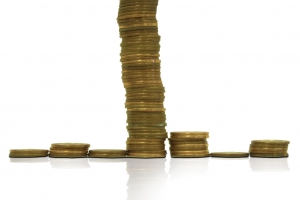Income Inequality

The American dream tells us that, through hard work, every citizen has the opportunity to achieve success and prosperity. And perhaps that is why income inequality has become such a compelling issue throughout the United States: because the debate over its extent, its effects, and the policies proposed to alleviate it strikes at the heart of what "opportunity" means.
The phrase "income inequality" refers to statistics which show an increasing disparity in income between the highest and lowest earners.
But statistics vary. Measuring income is not a straightforward matter. There are many ways of defining income, and of compiling and comparing data, all of which lead to different results when trying to measure 'inequality'. Most widely accepted methods of calculating income do show that the gap between the richest and poorest Americans is getting wider – but there are a few economists who argue that these results are misleading, and that the gap is not as significant as it is made out to be.
Why it matters
Both sides of the debate over income inequality come down to the American dream. Some are concerned that the increasing gap between rich and poor makes it harder for those born with less advantages to achieve prosperity.
Others counter that the policies advocated to counter income inequality would take prosperity and success away from those who have fairly and rightfully earned it.
A problem for New Hampshire?
By most measures, income inequality is lower in New Hampshire than in most other states. This has led some to argue that this issue is therefore less of an area of concern for Granite Staters than it might be for residents of other areas of the U.S.
However, even here in New Hampshire, the growing gap in earnings between the rich and poor has been linked to a slowdown in tax revenues that directly impacts the state budget.
Why is it happening?
Theories about what is causing rising income inequality are equally complex and varied. Among them are the belief that globalization and technological advancement are to blame, as they have eliminated or relocated better-paid unskilled jobs. Others say that high levels of immigration have lowered wages for the working classes, or that the decline of unionization plays a part. French economist Thomas Piketty, whose book Capital in the Twenty-First Century is often cited in debates over income inequality, argues the earning gap is the logical outcome of a free market, capitalist system.
Broader effects
Income inequality has been linked to an extremely broad range of economic and social problems, including:
- Slow economic growth
- Greater financial instability
- Decreased state tax revenue
- Decreased socio-economic mobility
- Increased poverty
- Political polarization
However, these are all extremely complex issues. The degree to which rising income inequality is responsible for any of them is the subject of a great deal of debate.
What to do?
Many those concerned about income inequality advocate a variety of policies aimed at closing the gap in earnings and alleviating the "opportunity gap".These include:
- Raising the minimum wage
- Increasing income taxes on the highest earners
- Creating more opportunities for affordable higher education
- Increasing public spending on social safety net programs
On the other hand, opponents of such measures argue that they would not have the impact that advocates desire, or could actually worsen the conditions they hope to improve. Others believe that it is contrary to American principles to "punish" high-earners for their success.
Income inequality is a problem in New Hampshire.
- Most economic measures demonstrate a trend towards increasing inequality in income between the lower, middle, and upper classes both in the U.S. and around the world.
- Even though income disparity is smaller in New Hampshire than in most other states, the gap between rich and poor is still considerable, and has been blamed for a slowdown in tax revenues that directly impacts the state budget.
- Increasing income inequality has been linked to a wide range of social and economic problems, from financial instability to increases in poverty, political polarization, and social unrest.
- It is the responsibility of government to create policies that will counter the trend towards rising inequality, narrowing the gap between rich and poor.
Income inequality is a problem in New Hampshire.
- Some economists argue that taking a more comprehensive view of what qualifies as income – for example, including social security payments and employer-provided health insurance – gives results that show minimal to no growth in inequality since 1989.
- Even if you accept that income inequality is increasing, the disparity between rich and poor is lower in New Hampshire than in most other states, making this less of an area of concern for the Granite State.
- The social and economic ills that have been attributed to income inequality can be shown to have other possible causes, such as the disappearance of low-skill jobs and breakdowns in traditional family structures.
- The policies advocated by those wishing to counter a rise in income inequality, such as an increase in the minimum wage, could actually exacerbate the conditions they are aimed at alleviating.
- Government should not legislate on income inequality, but should stand by and allow the market to operate freely.











Comments
Login or register to post comments